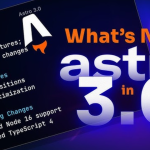In the ever-evolving landscape of artificial intelligence (AI) and machine learning, the quest to create intelligent, conversational agents has reached new heights. One of the most notable achievements in this realm is ChatGPT, a cutting-edge AI model developed by OpenAI. Alongside it, Midjourney has emerged as a versatile AI tool, while various AI tools and APIs contribute to the ever-expanding AI ecosystem. In this comprehensive guide, we will delve into the world of ChatGPT, Midjourney, and other AI tools and APIs, exploring their capabilities, applications, and the transformative potential they hold—all while respecting the basics of search engines and SEO.
The Rise of ChatGPT
What Is ChatGPT?
ChatGPT is a language model developed by OpenAI, building upon the remarkable capabilities of GPT-3.5. It’s designed to engage in natural, dynamic conversations with users. This AI model has made waves for its ability to understand context, generate coherent responses, and adapt to a wide range of conversational contexts.
Applications of ChatGPT:
- Customer Support: ChatGPT can provide automated customer support by answering common queries and assisting users with information.
- Content Generation: It excels at generating written content, such as articles, product descriptions, and more.
- Language Translation: ChatGPT can facilitate real-time language translation.
- Personal Assistants: It can serve as a digital personal assistant, helping with tasks like scheduling appointments and sending reminders.
Midjourney: Navigating AI Development
What Is Midjourney?
Midjourney is an AI tool designed to streamline AI development, making it more accessible to developers and businesses. It simplifies the process of training, deploying, and managing AI models, reducing the technical barriers involved in AI development.
Key Features of Midjourney:
- User-Friendly Interface: Midjourney offers an intuitive interface that allows users to upload their data, train models, and deploy them with ease.
- Scalability: It provides the flexibility to scale AI models based on the project’s needs, ensuring optimal performance.
- AI Monitoring: Midjourney offers monitoring tools to track the performance of deployed models, making it easier to identify and address issues.
- Integration: It can seamlessly integrate with other AI tools and APIs, enhancing its versatility.
The Expansive AI Ecosystem
The AI landscape is teeming with a variety of tools and APIs, each contributing to the ever-growing potential of AI applications. Let’s explore some prominent AI tools and APIs and their applications:
1. Natural Language Processing (NLP) Tools
- BERT: Bidirectional Encoder Representations from Transformers (BERT) is a pre-trained NLP model used for various language-related tasks like sentiment analysis and language understanding.
- Spacy: An open-source NLP library that offers efficient tokenization, part-of-speech tagging, and named entity recognition.
2. Computer Vision Tools
- OpenCV: A widely-used computer vision library that provides tools for image processing, object detection, and more.
- TensorFlow and PyTorch: Deep learning frameworks with extensive computer vision capabilities for image recognition and classification.
3. Speech Recognition APIs
- Google Cloud Speech-to-Text: An API that converts spoken language into written text, making it valuable for transcription services and voice assistants.
- IBM Watson Speech to Text: Provides speech recognition capabilities for a range of applications, from transcription to voice-controlled systems.
4. Recommendation Systems
- TensorFlow Recommenders: A library for building recommendation systems, often used by e-commerce platforms and content recommendation engines.
- Amazon Personalize: Amazon’s recommendation service that utilizes machine learning to provide personalized product recommendations.
SEO and AI
Search engine optimization (SEO) plays a crucial role in digital visibility and online marketing. AI tools, including ChatGPT and Midjourney, can enhance SEO efforts by generating high-quality content, optimizing metadata, and providing insights into user behavior. Integrating AI into SEO strategies can lead to improved search engine rankings and increased organic traffic.
Key SEO Considerations:
- Keyword Research: AI tools can assist in identifying relevant keywords and phrases to optimize content for search engines.
- Content Generation: AI models like ChatGPT can help create engaging and informative content that resonates with both users and search engines.
- Metadata Optimization: AI can analyze and optimize meta titles, descriptions, and headers for improved click-through rates.
- User Behavior Analysis: AI tools can provide insights into user behavior on websites, helping to refine SEO strategies.
Conclusion
ChatGPT, Midjourney, and a myriad of other AI tools and APIs are at the forefront of transforming the way we interact with technology and conduct business. From natural language processing and computer vision to recommendation systems and speech recognition, the AI ecosystem offers a multitude of possibilities.
As AI continues to evolve and integrate into various industries, it’s essential to harness its power effectively. Incorporating AI into SEO strategies, content generation, and workflow automation can lead to improved user experiences, enhanced productivity, and a competitive edge in the digital landscape.
The world of AI is expanding, and staying informed and adaptable is essential for individuals and businesses looking to leverage its transformative potential. With tools like ChatGPT, Midjourney, and the broader AI ecosystem, the possibilities are limitless, and the journey to AI excellence is ongoing. Embrace innovation, stay curious, and explore the boundless opportunities that AI tools and APIs have to offer. Your path to AI-driven success begins here.








